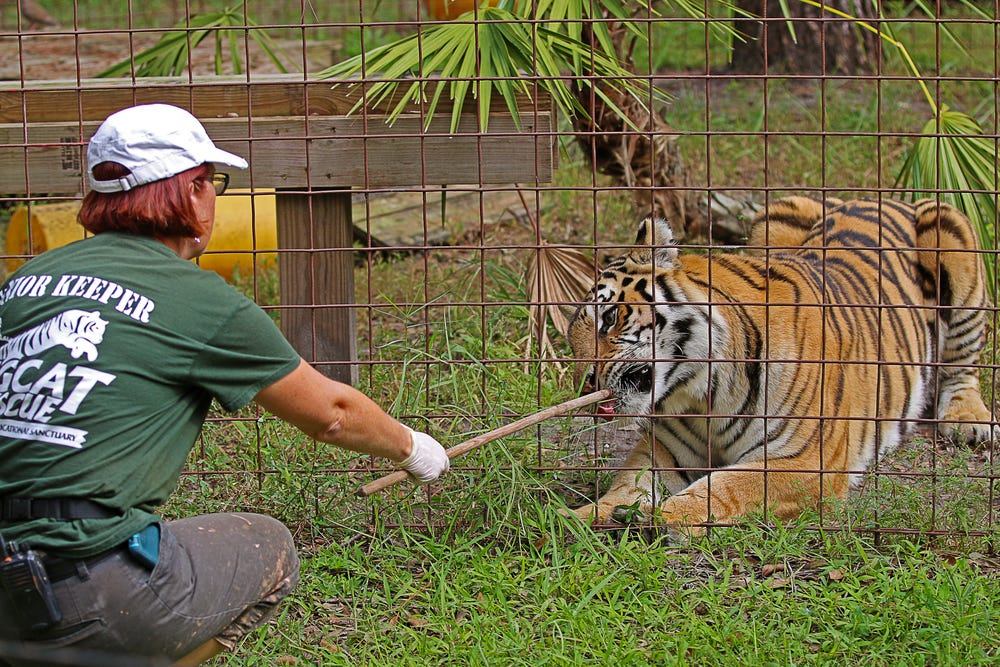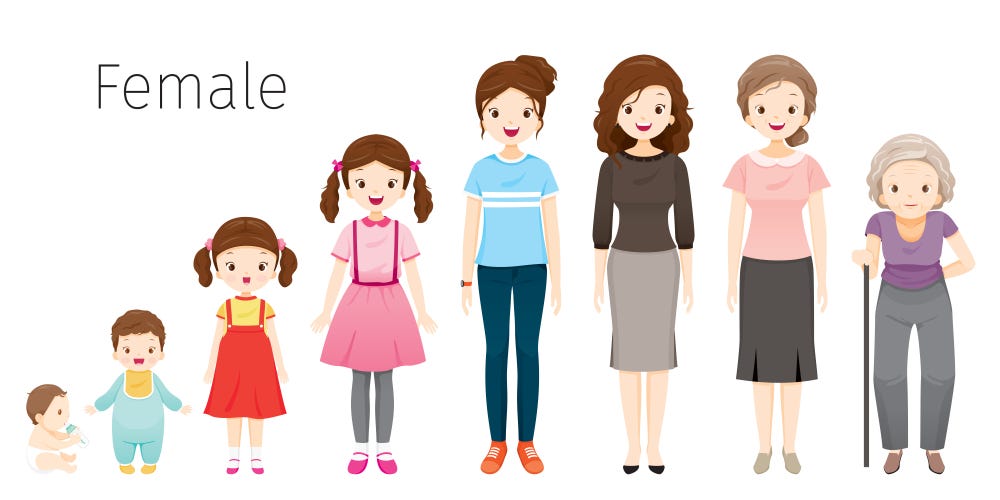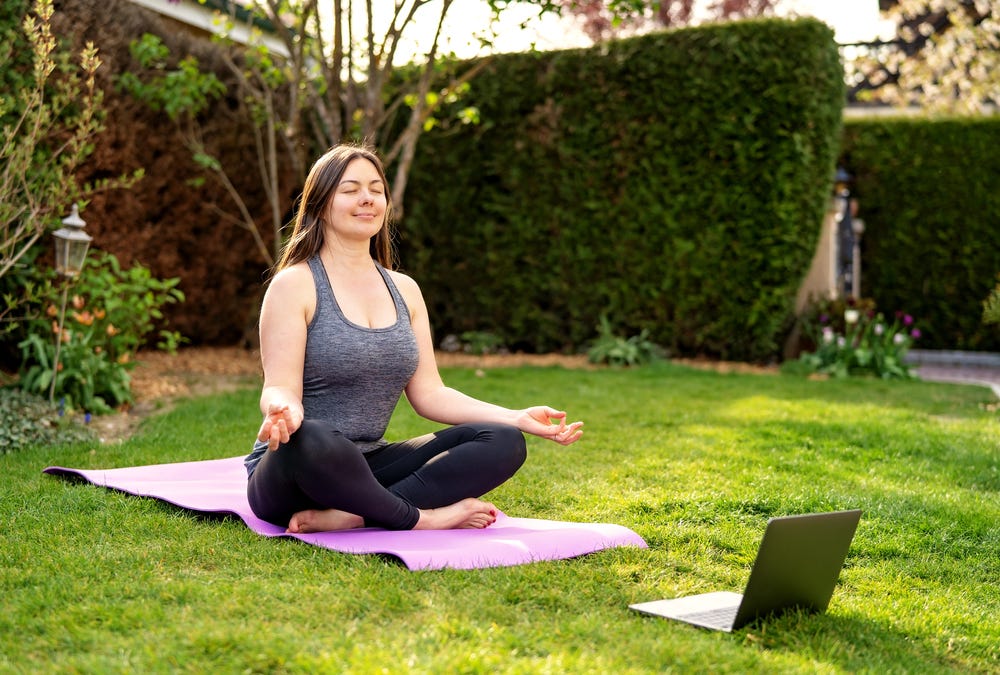The Real, and Watch What Happens Live With Andy Cohen. She was featured on Bravo TV’s LA Shrinks and hosted 80 episodes of Marriage Boot Camp. Dr. Venus Nicolino has accomplished over 100 episodes of television. In addition to her work as a media personality, Nicolino is the bestselling author of Bad
Advice: How to Survive and Thrive in an Age of Bulls--t. Dr. V’s no-holds-barred writing quickly earned her a No. 1 spot on the Los Angeles Times bestseller list and USA Today. The New York Post wrote that Bad Advice was one of the “top five books that will change your life”. Dr. Venus Nicolino also hosts a weekly podcast, “The Tea With Dr. V.” She uses her background as a social scientist and her natural bulls–t detector to dish out sharp advice (with love) to a star-studded list of celebrity guests like Christine Evangelista and Anthony Scaramucci. Inher personal life, Dr. Venus Nicolino is a dedicated wife and mother who lives in Lugano, Switzerland.
 medium.com/@dr.venus.nicolino?source=rss-f27986318495------2
medium.com/@dr.venus.nicolino?source=rss-f27986318495------2

Economics, politics, and love advice. Think it can all be contained in one podcast? Dr. V makes it make sense when she interviews American financier Anthony ‘The Mooch” Scaramucci.
Scaramucci’s Time at the White House
The interview begins with Scaramucci talking about his time at the White House. He served as the Director of Communications from July 21 to July 31, just 10 short days, in 2017, during the Trump administration. He was fired from the position after launching a strongly worded attack on the presidency during an interview with the New Yorker’s Ryan Lizza.
Although he calls the experience humbling and humiliating, his overall sentiment is, “Big deal.” People make mistakes and get fired and they need to learn from these mistakes and move on.
Scaramucci admits he made mistakes in his decision to work for Trump, who he initially distrusted, and felt his pride and ego caused him to accept the job. However, he is glad that he called the President out for his actions, which Scaramucci felt were less than honest and potentially dangerous.
How Does Pride and Ego Push Us Forward
Dr. V then explores the concept of pride and ego and how it plays into the decisions we make.
Both Dr. V and Scaramucci were born to Italian families that placed a great deal of importance on a child’s ability to make their parents proud. Dr. V wonders how that may have motivated Scaramucci in his decision to work for the president and his other business ventures.
Scaramucci reflects on growing up in a middle-class neighborhood and always having an entrepreneurial spirit. He looks back on running his own paper route as a kid to help his family and explains how he went on to build two hedge funds, attend Harvard and work for the president. He feels that part of his drive is due to narcissism, but that he is also motivated by good intentions.
Dehumanizing and Stereotyping
The next question Dr. V has for Scaramucci is based on a quote in an interview he had with Newsweek magazine. He expands on what he said discussing the part dehumanizing and stereotyping plays in politics. He explains how, when there’s nothing left to argue about, politicians will bring one another down by calling them out for their race and beliefs.
He points out that this also occurs on a ‘street level’ between the left and right.
Dr. V asks Scaramucci what we can do to overcome this division. He feels that the only thing that may ‘heal’ the divisiveness is a crisis. He thinks a crisis will make people come together so they can move forward and overcome stereotypical thinking.
Making Crypto Less Cryptic
Next, Dr. V asks Scaramucci to explain crypto, which she calls “confusing as f**k”.
Scaramucci recommends a book called ‘Bitcoin: The Future of Money,’ which was written in 2014. Although it was released a long time ago, the author predicted many of the things that have been happening with crypto today. It’s also a short, easy read on the subject.
Scaramucci then explains crypto to Dr. V and the audience saying money is just a piece of paper. It’s only worth the value humans put into it.
Crypto is similar only the money is digital, and its transactions are recorded on a technological ledger. The money can be used to purchase things, but it can also be traded. It is open-sourced and decentralized so it is not controlled by the government.
There are different kinds of cryptocurrency, each with a different code and a different value.
When asked whether cryptocurrency will replace the dollar, Scaramucci says that is unknown. He feels that it could, but it doesn’t have to. He thinks that regardless of whether it takes over the dollar or not, it has the potential to be very successful.
How Twitter Changed Scaramucci’s Life
The interview then moves on to the topic of social media, and Twitter in particular.
Scaramucci explains that during his time in the White House, he was advised by Kellyanne Conway to turn off his Twitter comments and not pay attention to them. While he has found this impossible to do, he has been able to better tune them out as time goes on.
He advises anyone who holds a lot of stock in their Twitter comments to refrain from talking in public, doing podcasts, or giving their opinion in any other manner. Although he still admits he occasionally gets upset over other people’s rude comments, he has learned to put less and less stock in them.
Love Advice
So how does love advice figure into all this? Dr. V asks Scaramucci the worst love advice he ever got. He reflects on a time when he and his wife were on the verge of divorce, but instead of reviewing the advice he has gotten, he offers advice to the audience.
He tells people never to give up on someone they love. He feels you should love your partner unconditionally. He thinks you need to drop your pride and your ego for something more important.
Conclusion
Scaramucci certainly has a lot of interesting things to say about politics, finances, and the world at large. And Dr. V really knows how to get it out of him. If you want all the juicy details, be sure to check out the interview in its entirety on The Tea with Dr. V.

When Tiger King aired in 2020, it was all anyone could talk about. It made celebrities out of all its cast members, for better or worse.
Animal activist Carol Baskin was heavily featured in the series, and often not in the best light. The attention she got resulted in vicious memes and even death threats. But she persevered and came out stronger the other side.
In 2021, she sat down with Doctor V to share her experiences. Here’s what she had to say.
On Her Dancing with the Stars Experience
One of the more positive things to come out of the Tiger King for Carol was her experience on Dancing with Stars. Dr. V starts in by asking Carol what that was like.
Carol says it was the hardest thing she had ever done physically, and she also found it difficult to be away from her animal family. But she said that she really enjoyed meeting all the amazing people on the show.
On Becoming a Viral Phenomenon
Dr. V then moves on to question Carol about what it’s like to be a viral phenomenon. Carol says that she was glad it happened during COVID.
Already a local celebrity, Carol was used to getting attention when she went out in her community. But when she flew out to L.A. for Dancing with the Stars, she was surprised to find out how many people wanted to meet her and take pictures with her. She didn’t realize that people would notice her on sight.
She describes it as being ‘a weird experience’
She was also surprised that people came up to her and told her they loved the show even though it painted her as being a vicious, home-wrecking murderer.
About the Tiger King Series
Next, Dr. V asks Carol about what it was like to watch the Tiger King series and see herself painted in a negative light.
Carol says the series took her by surprise as she was told it was going to be called “Stolen Wildlife” and advocate for the rights of big cats. She said she felt betrayed.
She says she was waiting for a point when the show was going to reveal that what was being said about her was lies and she was shocked to find it never got to that point.
She was also surprised that people bought into how she was portrayed in the series. As a result, she would have people calling her and telling her how much they hated her and how they wanted to kill her and her family and cats.
Despite the reaction, she doesn’t feel hurt by the public because she knows the truth. But she does feel betrayed by the show’s producers as they acted as if they understood her side of the story.
She also revealed that the producers originally tried to sell the show to CNN but when it was rejected, she thinks they decided to flip it to make it something that was entertaining.
She said she reached out to the producers to see if they would clear the air in the next episode, but they showed no signs of doing so, so she refused to continue to participate.
On Equal Rights
Dr. V then poses an interesting question. Reflecting on all the hate Carol has attracted, she asks whether she feels the same thing would have happened if she was a man.
Carol says that she never considered that angle until it was brought up in the media. A publication wrote an article about her referring to her treatment as misogyny.
She said that she agreed that it was misogyny and mentioned that 95% of the abuse she got after the episode came from men. Based on how they spoke, she felt that they had never accomplished anything in their lives or that they had an issue with a female figure in their lives and that they were taking that anger out on her.
She also felt that their anger was fueled by the frustration and anxiety of the pandemic.
She mentions that many people thanked her for being an outlet for them during the pandemic and she is happy to have served that purpose despite the negativity. However, she admits that she thinks it was harder on her family than it was on her.
Tiger King Brings Attention to Animal Rights
Although Tiger King produced its share of negativity, Carol is glad that it has brought more attention to animal rights. She says that she was used to having people look at her like she had two heads when she lobbied for animal rights. Now she’s getting a lot more support.
Carol Baskin has seen her share of interesting times, but it seems to have made her stronger. To find out more about her adventures, listen to the podcast in its entirety. And stay tuned to Dr. V’s website to check out more of her entertaining interviews.

Angela Yee is a news personality and entrepreneur. She sits down with Dr. V to discuss her accomplishments, where she gets her motivation from, and how she handles sexism and racism. Read on to find out what unfolds.
The Most Influential Experience of Angela Yee’s
Dr. V starts the interview with an insightful question asking Yee what she would consider being the most influential experience of her life. Lee reveals that becoming an entrepreneur opened a lot of doors for her. It put her in a variety of unexpected situations and taught her valuable life lessons.
She learned how to market herself and how to fulfill a need in an industry. She learned from working with others and she even learned from her failures.
Reviewing Her Sense of Accomplishment
Dr. V then asks Yee if she feels a sense of accomplishment in her business ventures or if she thinks she still has a long way to go.
Yee admits that while she is proud of herself, she’s nowhere near where she wants to be. She also points out that social media comments can be humbling taking her down a few notches.
She discusses coming from humble beginnings where she felt like a million dollars wasn’t a lot of money and she realizes that that goal is much more attainable now. She looks back on a time when she was in debt and living from paycheck to paycheck and how she couldn’t imagine being financially stable. Now she feels much more secure.
Tackling the Future
After Dr. V asks Yee to reflect on her past, she inquires about what the future holds.
Yee says she is hoping to purchase an investment property that doubles as a vacation home. She wants to find a place that will make her money but will also serve as an escape from the outside world. She’s hoping that she can use the space to write her book.
She’s also opening a coffee shop, Coffee Uplifts People, in Brooklyn and selling her juice in supermarkets around the country. She’s looking forward to growing her businesses in the future.
Philanthropic Causes
In discussing the future, Yee also talks about her philanthropic causes. She is hoping to bring her juices into schools so kids can eat more nutritiously. She feels that this will help them gain focus and overcome educational challenges.
In opening her coffee shop, she will also be teaching people how to launch their own coffee shop franchises. She is hoping this advice will be helpful to minority business owners.
She is also looking to help people in Brooklyn get the most out of their homes by connecting them with reliable contractors so they can get a maximum profit when they sell.
On Racism
As someone who is part black and part Asian, Yee has had her share of struggles with racism, and this was something that plagued her at a young age. She went to a predominantly white high school and eventually left because she felt discriminated against. She often listened to rap music to help her get through trying times.
She returned to the school in her senior year and found rap had gotten so popular that it worked to break down racial barriers. She believed it may have helped change people’s beliefs and attitudes towards black people.
On Sexism
Yee also talked about how sexism plays a role in racism. She was in a school that bussed in children that were considered gifted from poorer neighborhoods.
She found the boys had an easier time being accepted because they played sports and bonded with each other in that way. Girls, on the other hand, were discriminated against because of the way they looked and the way they wore their hair.
Now Yee feels more comfortable in her skin, but she still notices that a lot of businesses are controlled by white men. She feels it can be challenging for her to get ahead as a woman of color.
She counters feelings of discrimination by doing positive things for herself. She will also call out people who are guilty of being sexist or racist if the situation calls for it.
Interview Tips
Angela Yee is often in a position where she interviews people. Dr. V closes out the podcast by asking her if she has any interview tips for the listeners.
Yee advises people to play games during interviews. She feels this gets the candidate to open up and have fun with it. She also encourages interviewers to do some research on the applicant via social media before the interview and to really listen to what they have to say during the interview process.
Conclusion
Angela Yee has a lot to offer on entrepreneurship, society, and life in general. To hear more, check out the podcast in its entirety. Dr. V always has the best tea!

For this podcast, Dr. V sits down with journalist and YouTube personality, Chris Hansen. They talk about his decades of work in journalism including his reality TV series, “To Catch a Predator”. The interview provides insight into Chris’s source of motivation as well as modern issues in the news industry.
Growing Up
Dr. V kicks off the interview by asking Chris about his life growing up and how it inspired him in his career.
Chris reveals that he was most inspired by living close to the location where Jimmy Hoffa was kidnapped, the Red Fox Bar in Chicago. As a teenager, he would often ride his bike there to check out the scene as it was swamped with news reporters and investigators.
He describes this as the time when he was bit by the journalism bug.
When he started college, he signed up for the school radio network on the first day and he was on the radio the next day. This set him on a path to becoming a journalist. He worked from there networking with the right people to get to where he is today.
Today’s World of Journalism
The conversation comes around to today’s world of journalism. Hanson feels that there’s a lot of extremism in media targeted at getting ratings.
He discusses how Fox built an empire around promoting President Trump and a conservative agenda. He calls out CNN for going the other route with a more liberal view.
But overall, he feels there is less true reporting in the industry.
Dr. V asks if that frustrates him, but Hanson feels its just another trend in the industry. He feels that true reporting will come back around. However, he believes that the drama and personalities will always be there.
On To Catch a Predator
Next, Hanson talks about his reality TV series, “To Catch a Predator”. Dr. V asks him about the negative criticism the show received. Chris mentions that people called him out for showboating and working too closely with the police. However, he denies this claim.
He feels he was using his personality and wit to help people understand crimes, get into the minds of predators, and hear the voices of victims.
He wanted to take people on a journey of discovery and hopefully, protect them from becoming victims themselves. He wanted to make them see things they didn’t normally see and hear things they didn’t normally hear.
So does this compare Hansen to the flashy journalists he just criticized? Not in his opinion. He feels that he uses his personality to keep people engaged so they can learn valuable lessons. He also said he found the series interesting and important.
The Skillset for a Journalist
Hansen admits that it takes a certain skill set to be a journalist. At first, he jokingly refers to it as ADD. But delving deeper, he reveals it requires an ability to pay attention to a lot of details at once.
He discusses how live television requires you to pay attention to your crew while “all hell is breaking loose in the background”. He says this helps one develop “laser-sharp focus”. It also forces them to prioritize and compartmentalize.
Chris Hansen’s YouTube Channel
Hansen now has a YouTube channel that features him interviewing victims of predator crimes. Dr. V asks him if he identifies with these victims and in what ways.
Chris says he feels he has an important responsibility to tell the victim’s story. He also understands that they may be vulnerable, so he is careful not to retraumatize them. But he needs to take them through the story so he can help others not become victims of violent crimes.
What Inspires Chris Hansen’s Passion
Dr. V then asks Hansen where he gets his inspiration for doing what he does.
Hansen mentions a sense of accomplishment that comes from just making the episode happen. He feels good about his ability to entertain, inform, and get good ratings. He also mentions that the pay is gratifying.
He admits that there are many times along the way when he wonders how he’s going to make his projects happen. He says this further fuels his feelings of accomplishment when his projects are brought to fruition.
Conclusion
Chris Hansen’s journalism experience has made him quite an interesting figure. Check out the episode in its entirety to find out more about the advice and knowledge he has to offer. And be sure to stay tuned to Dr. V’s podcast to ensure you don’t miss a spicey interview.

In this episode of The Tea with Dr. V, Dr. Venus Nicolino welcomes Brooke Burke, television personality and fitness guru. The two discuss the female evolution that comes later in life.
What is Female Evolution in Your 40’s?
Aging comes with its share of downsides, but Burke explains to Dr. V how she embraces it as it gives women the perspective to figure out who they are. It allows them to establish boundaries and learn how to say no. It lets them take on an ‘I don’t give a f**k’ philosophy so they can put themselves first when need be.
Burke and Dr. V reflect on the issues that have held women back in the past. They look at their own mothers and determine that they may have been reluctant to speak up because they were sold on an idea of perfectionism. They were taught to fear failure.
Today’s women know that it is okay to fail because it provides a teaching experience. Failure is more accepted among women in modern times. And as you get older, you become more used to failing and may even embrace it and see it as a learnable moment.
On Marriage
Dr. V then asks Burke what she feels was the worst advice she ever received. Burke refers to her father, who engrained her with the idea that marriage was for life. She feels that this is what made her stay with her husbands (Burke was married twice) when she really should have moved on.
She says that she saw leaving her marriage as a sign of failure. She describes being in a situation where she didn’t know what she wanted, how to express herself, or define what she needed. She notes that there may have been confusion between intensity with passion and privacy and love.
Burke since realized that she needed to achieve peace in life and find a relationship that was easy for her. She has moved on to a partnership that she considers ‘easy.’ She knows herself better as a person and doesn’t need the intensity of an ‘up and down’ relationship and feels this makes for a healthier union.
Celebrating Life
The conversation then rolls around to the concept of celebrating life. Burke and Dr. V realize that being faced with their longevity may increase the need to be happy. They believe they can produce this feeling of celebration within themselves and within their relationships.
They then pose the question, are young women celebrating enough? They wonder if they are holding back due to a lack of being comfortable in their bodies. They refer to this as a ‘pleasure gap’ between younger and older generations.
Burke and the doctor further dissect the pleasure gap by taking it to the bedroom. Dr. V notes that 94% of women do not orgasm during intercourse. Burke capitalizes on this, commenting on how many women have accepted that they cannot orgasm and will never experience ecstatic pleasure and feel intercourse is about ‘his’ pleasure.
Burke says that this is not okay. She believes that women need to break away from the construct of women not experiencing pleasure. The two emphasize the need for women to feel comfortable within their own bodies, so they own their pleasure.
Talking More Openly
This takes Burke onto a related topic of how today’s older women feel comfortable talking about sexual pleasure. They believe this may be a difficult subject for younger women to broach as they are involved with small children and other tasks. Once they get older, they can focus on themselves and be open about what makes them feel good.
The increased openness allows them to “bring a much more rounded woman to the table”. They have the freedom to be who they are supposed to be, and this is something they wish younger women understood. This is the advice they would have given to their younger selves and would share with their daughters.
What Should Women Be Looking for in Relationships?
The women move on to reflect on what women should be looking for in a relationship. Brooke comments that she enjoyed it when her current partner told her she could feel safe with him. This brought a different perspective to the relationship, and it was something she was missing in her past partnerships.
She also appreciated his generosity with his feelings and his sense of openness. This is something that she is thankful for. It’s also a sign that she’s willing to give and accept love.
Conclusion
Burke and Dr. V encourage women to understand themselves better and to own their feelings. They recognize this as something achievable with age but encourage women to embrace it earlier in life. Listen to the podcast in its entirety to find out more about how evolution can help you achieve the happiness you deserve.

All of us could use a reduction in the stress we deal with daily. In her podcast The Tea With Dr. V, Dr. Venus Nicolino sits down with meditation guru Chel Hamilton to find out how you can relieve anxiety and find the peace you require.
How Chel Hamilton Started a Meditation Podcast
The podcast starts off with Dr. V and Chel discussing how Hamilton’s podcast got started.
Initially, Dr. Hamilton was reluctant to do a meditation podcast. As a hypnotherapist, her friends felt she had the perfect background and encouraged her to launch one. But she felt that she didn’t live a clean enough lifestyle to do so, and she didn’t like the idea of telling someone what to do.
However, the idea began to grow on her as she saw the potential to create a guided meditation podcast that would appeal to people like herself. These were individuals that were dealing with anxiety and didn’t feel like they had twenty minutes to take out of their day to meditate. Her podcast allows people to achieve peace in just five minutes.
Dr. V goes on to sing the praises of Hamilton’s podcast. She loves it because it gets her results quickly. She mentions that it’s in the top 1% of the world’s most downloaded podcasts.
The Power of Meditating for Short Time Periods
The women then move on to the subject of the power of meditating for short periods of time.
Chel starts out by comparing meditation to a trip to the gym. Going to the gym takes repeated visits before you start seeing results. Meditation differs in that it can offer immediate satisfaction. However, the more often you meditate, the better able you will be to achieve peace long-term.
She then talks about how meditation affects the subconscious mind. Guided meditation will speed up your subconscious mind bringing it to a state where it’s better able to let go and settle down. Once it achieves this state, the conscious mind follows suit.
On her podcast, Chel attempts to take listeners from where they started to a more positive place. Her approach varies in terms of whether she’s trying to get her listeners to achieve feelings of power, the confidence of love. Each meditation is customized to produce different results.
She also states that meditation stays with you throughout the day. If you are reminded of the peaceful moments you experienced, you will have the presence to become more mindful, calmer, or more confident in that moment.
How Meditation Can Help You Overcome Confirmation Bias
Confirmation bias occurs when your brain looks for confirmation of what you already believe to be true. Once you have a belief, your subconscious mind will attempt to prove that belief. If someone tries to challenge your belief, you will look for information that proves your side, and you will have the need to share that information with the other person to show you are right.
The women discuss the problems that come with the need to be right. They feel that meditation helps you open your mind, so you allow space for other thoughts and beliefs.
Short Meditation Every Day vs. Long Mediation a Few Days a Week
Dr. V asks Chel whether it’s better to meditate for five minutes every day or every other day or to meditate for 45 minutes once or a few days a week.
Chel says the 5-minute option is better for her due to the huge commitment a 45-minute session requires. She also mentions that physical activity and bonding with nature as a great way to get mediation in. She prefers walking in the woods or going out on the ocean to sitting still and meditating for long periods of time.
However, she mentions that everyone’s different and encourages people to try various methods to determine what’s right for them.
Can Someone Not Benefit from Meditation?
The women then explore the possibility that meditation is not right for everyone. They have heard of people who did not benefit from meditation because it left them alone with their negative thought processes.
Hamilton explains that intrusive thoughts are more likely to arise when a person does silent meditation instead of guided meditation. She discusses how a person can let negative thoughts build up so they imagine a worst-case scenario when they are alone. She believes that a guided mediation gives them the companionship they need to keep their thoughts on the right path.
Conclusion
Guided meditation can reduce stress and increase mindfulness. There’s no reason not to do it with the option to meditate five minutes a day. If you want to find out more about this beneficial practice, be sure to check out Dr. V’s podcast interview with Chel Hamilton in its entirety.